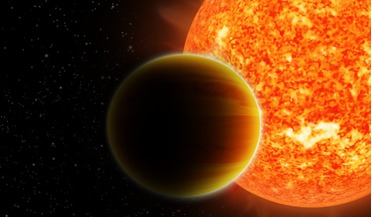 20 June 2016
Trio of hot Jupiters give clue to their formation
20 June 2016
Trio of hot Jupiters give clue to their formation
.... Since 2008, an international team of researchers has used high-precision radial velocity (RV) measurements to detect the signatures of hot Jupiters around main-sequence stars – stars such as our Sun – and evolved stars to determine how stellar mass...
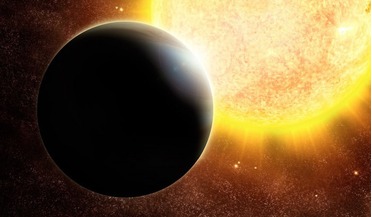 February 2016
How to Build Planets
February 2016
How to Build Planets
... of emission for both NIR and MIR excesses can be an indication of something different altogether. Artist’s impression of a ‘Hot Jupiter’ Observations with the Spitzer Space Telescope of discs lacking these two excesses indicate that the fledgling...
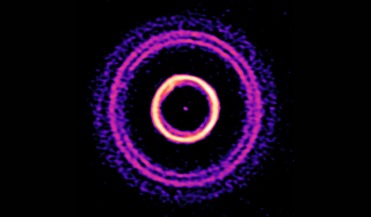 17 June 2019
Filling in the gaps of Jupiter-like planet formation
17 June 2019
Filling in the gaps of Jupiter-like planet formation
... away from the Sun. With a growing collection of ‘hot-Jupiter’ planets being found so close to their host stars in recent years... 3 to 10 AU, said Chiang. One particular caveat that separates Jupiter from the gas giants found in the GPIES is that none of...
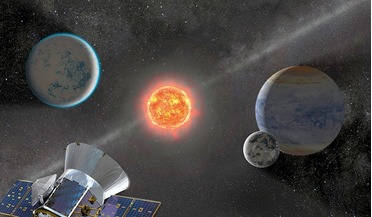 April 2019
Scanning the skies for exoplanets
April 2019
Scanning the skies for exoplanets
... UK, who helped discover HD219666 b. Smaller in size than the more familiar and widely observed hot-Jupiter class of exoplanet, only a handful of hot-Neptunes are currently known about The host star that HD219666 b orbits - HD219666 - is similar...
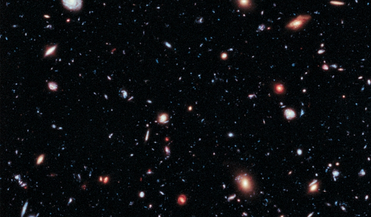 November 2020
The alien hunter’s field manual
November 2020
The alien hunter’s field manual
... unhaloed planets represent false negatives and false samples. At that time, when detections were limited to extreme hot Jupiters, the goal was to find as many as possible to gain a robust understanding of when, where, and how often planets...
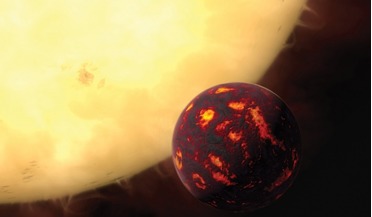 March 2017
Twinkle - a mission to unravel the story of planets in our galaxy
March 2017
Twinkle - a mission to unravel the story of planets in our galaxy
...) and mid-infrared (2.4-4.5 micrometres). The bands are optimised for studying atmospheric features in bright exoplanets, such as hot-Jupiters and warm super-Earths orbiting close in to their star. The wavelength range will allow detections of all...